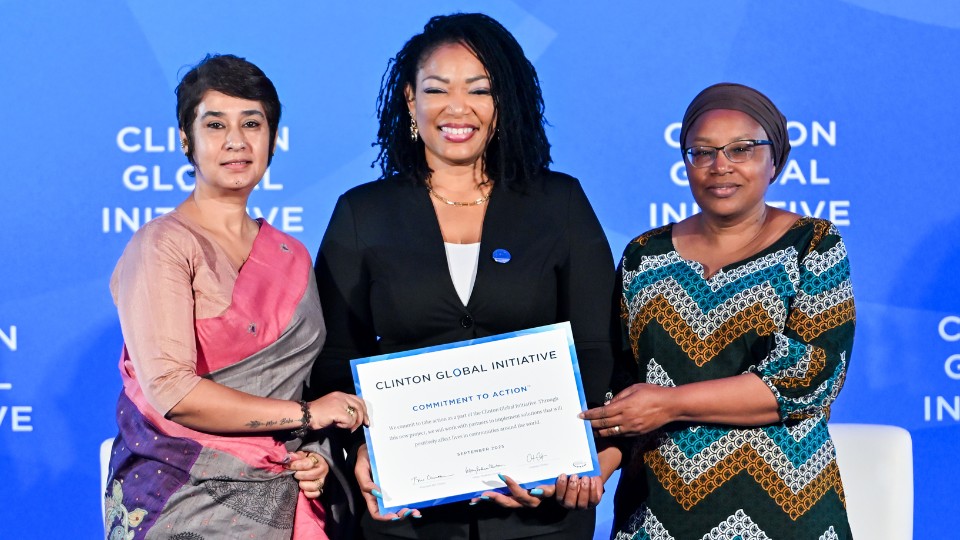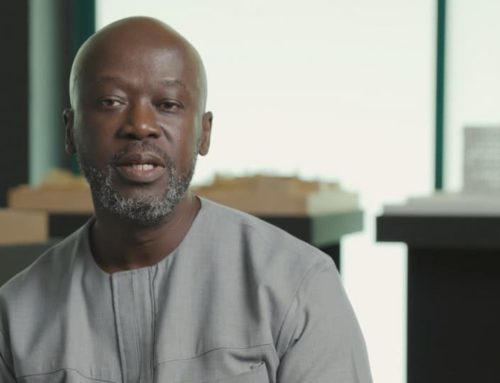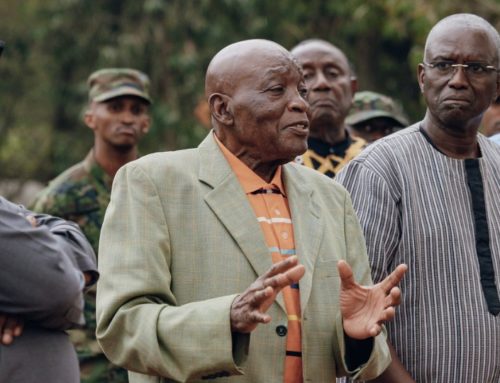At the 2025 Clinton Global Initiative (CGI) Annual Meeting, Alice Wairimu Nderitu issued a bold new commitment on behalf of the Aegis Trust: to establish the Isōko Centre for Humanity in Rwanda by December 2028. This groundbreaking Centre will serve as a global hub for peace education, strategic advocacy, and the prevention of identity-based violence, rooted in Rwanda’s transformation from genocide to reconciliation.
Over 200 million people have perished in genocides and atrocity crimes since 1900, with risks of mass violence accelerating today amid climate change, mass displacement, extremism, and deepening global polarization. The Isōko Centre for Humanity is the Aegis Trust’s response — a practical, evidence-based platform where lessons from Rwanda and beyond will be harnessed to disrupt cycles of violence before they escalate.
The Centre will deliver intensive in-person and digital programming designed to equip leaders, policymakers, educators, and civil society actors with skills to detect early warning signs, de-escalate conflict, and foster sustainable peace. At its heart will be the flagship Changemaker Programme, bringing leaders from conflict-affected regions into workshops and experiential learning designed to cultivate empathy, critical thinking, and actionable strategies. By 2028, at least 2,600 leaders will have been trained at Isōko, with a projected reach to 260,000 people worldwide.
The Centre will also include a Peace Museum of the Future, a dynamic space combining memory and prevention, and a Situation Room designed to provide real-time orientation for practitioners tackling urgent conflicts. With beneficiaries across Central Africa, the Middle East, Ukraine, Bosnia, the United States and beyond, Isōko will link early warning to early response, strengthen prevention networks, and sustain those carrying the burden of peacebuilding.
Freddy Mutanguha, CEO of the Aegis Trust and survivor of the 1994 Genocide against the Tutsi, emphasizes the urgency: “The risks of identity-based violence are intensifying across the globe. Through Isōko, we will give leaders the tools, networks, and renewal they need to stop cycles of violence before they spiral out of control.”
Alice Wairimu Nderitu, Global President of the Isōko Centre for Humanity and former UN Under-Secretary-General, says: “This commitment is not just about Rwanda. It is about demonstrating that prevention is possible, peace is practical, and reconciliation can be real. At Isōko, we will build an ecosystem of care for peacebuilders and a repository of knowledge rooted in lived experience, designed for the world.”
The project is supported by leading partners including the Pears Foundation, Templeton World Charity Foundation, Templeton Religion Trust, and the Claims Conference, alongside academic collaborations with the University of Rwanda, Tufts University, the University of Connecticut, William & Mary College, and the Medical College of Wisconsin.
The acclaimed Sir David Adjaye was yesterday publicly confirmed by the Aegis Trust as lead architect for the Isōko Centre for Humanity. Construction is scheduled to begin in Bugesera, Rwanda in January 2026, with the physical campus to be completed and opened by the end of 2028.
By investing in Isōko, the Aegis Trust is building on decades of proven impact — from establishing the Kigali Genocide Memorial to embedding Peace and Values Education in Rwanda’s national curriculum, now reaching over 2.5 million students annually. The Centre represents the next chapter: a living, global resource to prevent atrocity crimes and sustain peace for generations to come.



